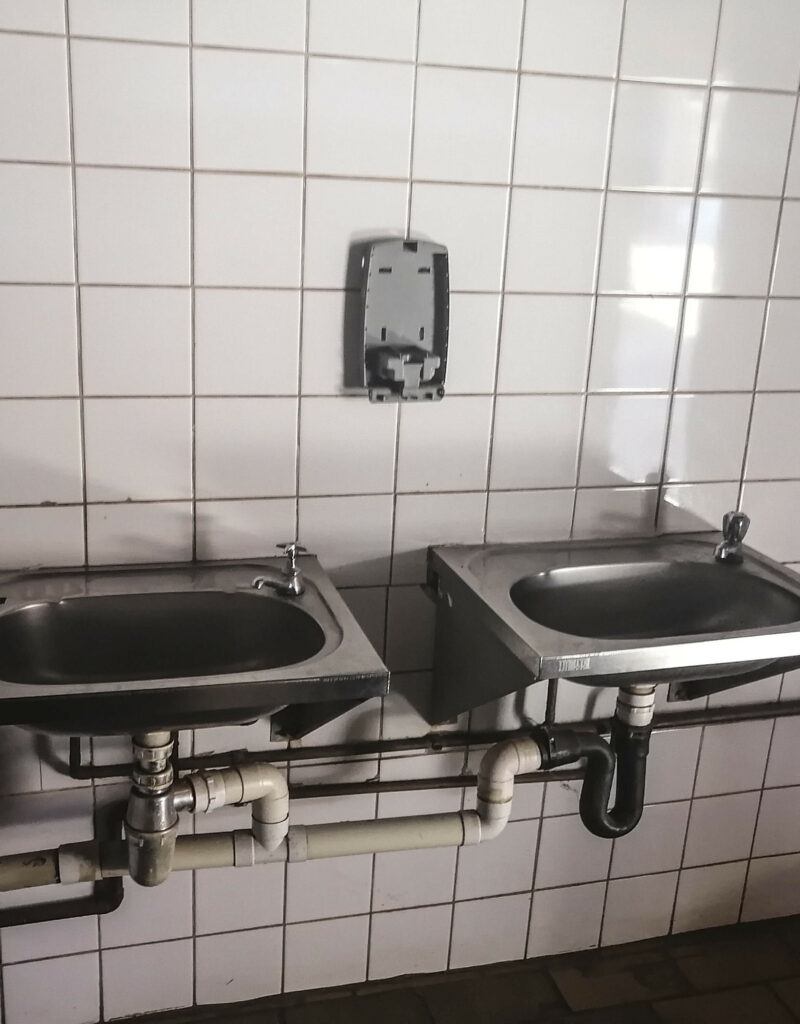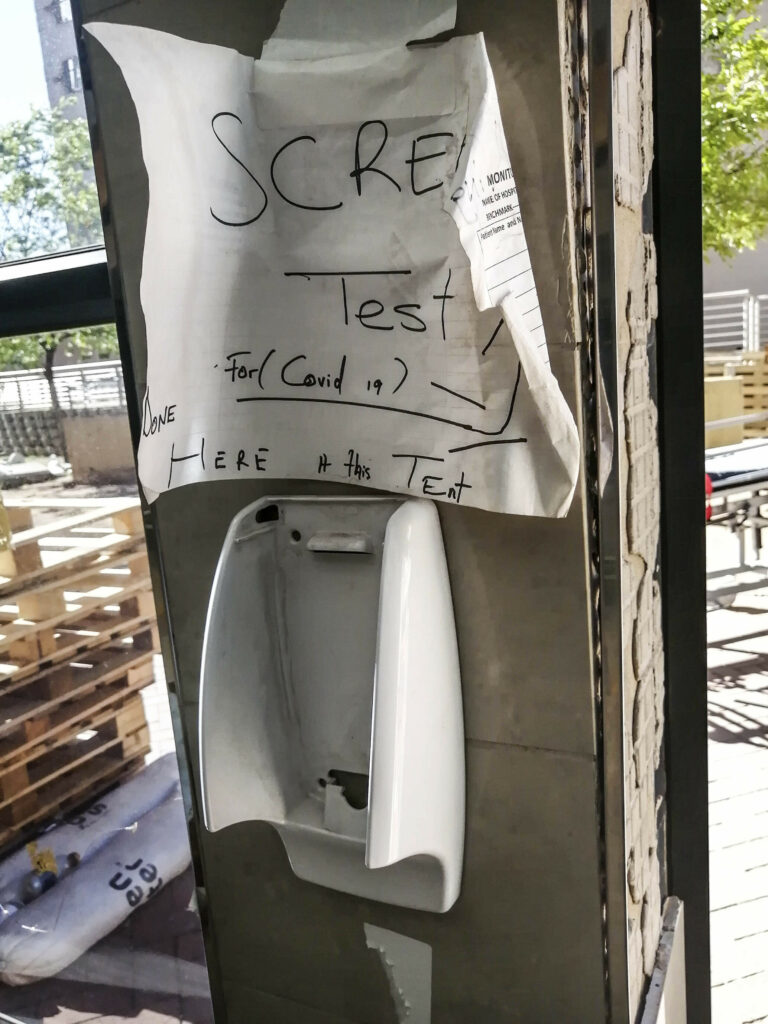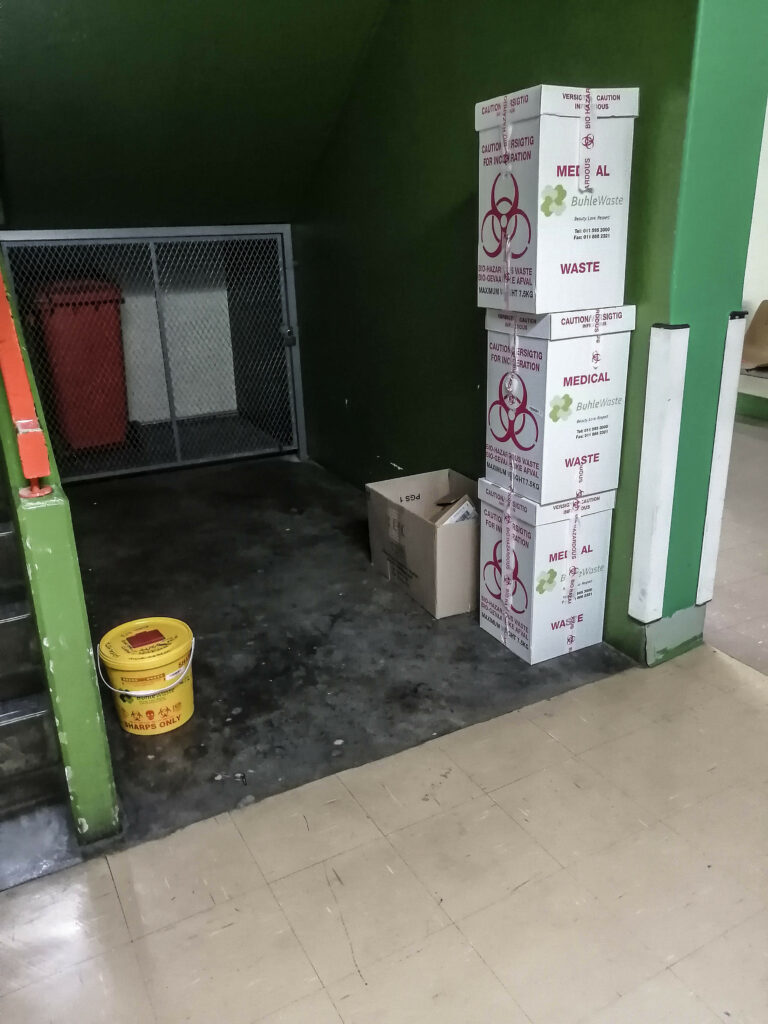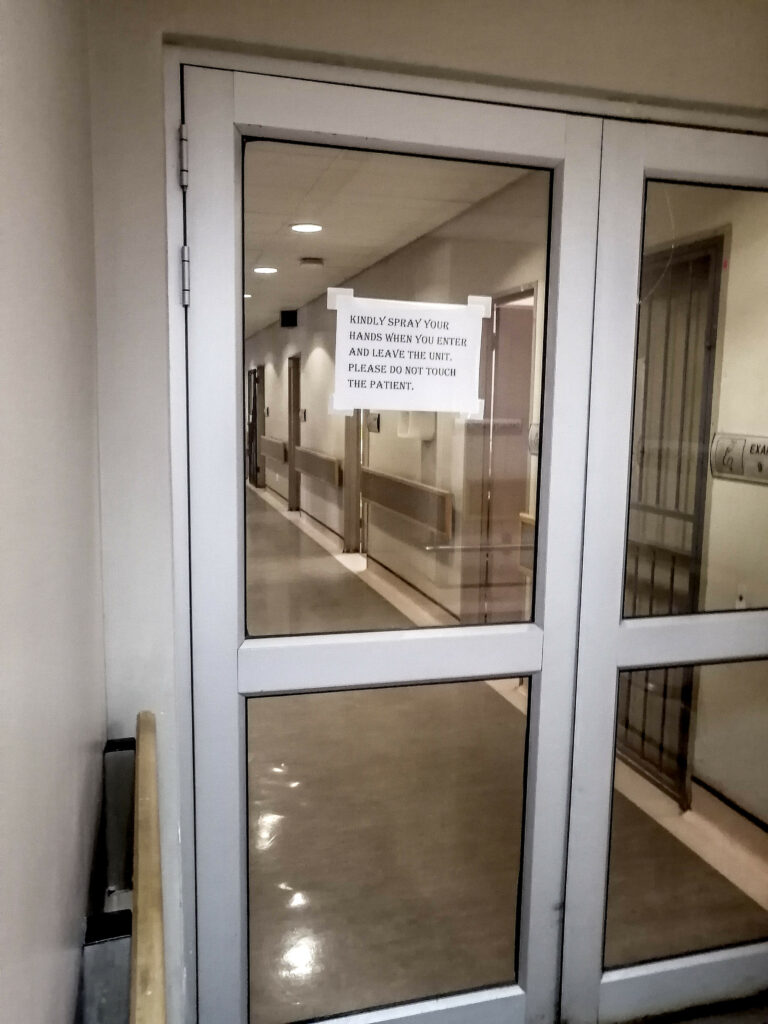South Africa’s provincial health departments are being crippled by lawsuits against them for negligence. But not all of the cases are legit. File photo
Gauteng has the highest number of Covid-19 infections in the country. But, given the province’s multibillion-rand personal protective equipment bill, its hospitals should be better equipped to contain the pandemic. However, many provincial hospitals, which are used by millions of people, simply do not adhere to the safety standards that are essential to minimise and prevent the spread of the virus.
This week the Mail & Guardian visited four Gauteng hospitals and observed that the safety standards that are expected of ordinary South Africans and business premises, such as malls, are not being followed.
Biohazard and infected material fills corridors and, when sanitising stations were available, most were empty. After spending hours at different hospitals, the M&G noted that people were allowed to enter and exit without temperature screenings or having their details taken down — and, at some of these hospitals, social distancing was not enforced.
 Tembisa Hospital. No soap dispensers meaning there is no soap to wash hands. Those that have soap dispensers there is no soap inside.
Tembisa Hospital. No soap dispensers meaning there is no soap to wash hands. Those that have soap dispensers there is no soap inside.
As of Thursday, 219 704 people in the province had contracted the virus and more than 4 200 had died.
University of KwaZulu-Natal infectious diseases specialist, Dr Richard Lessells, told the M&G this week that the problem of hospitals not adhering to the Covid-19 safety standards was not unique to Gauteng.
“It’s disappointing but not surprising that you have found these lapses when you have visited healthcare facilities,” he said. “Although the number of Covid-19 admissions continues to decline, there is still quite a high risk of SARS-CoV-2 transmission in [health] facilities, especially as hospitals open up more of their normal services.”
In response to the M&G’s detailed questions about the state of these hospitals and how not adhering to safety standards flew in the face of their own policies and the fight against the pandemic, Gauteng department of health spokesperson Kwara Kekana said health facilities were expected to adhere to the safety standards implemented to reduce the risk of Covid-19 infection.
“All facilities are reminded that patients coming to health facilities should be screened, there should be sanitisers at various points [and] soap in ablution facilities. [Officials should] ensure that patients adhere to physical distancing when coming to access healthcare services,” Kekana said.
She added that acting health MEC Jacob Mamabolo would be looking into health facilities that do not comply.
Chris Hani Baragwanath academic hospital
When the M&G visited the largest hospital in Africa (the third-largest in the world) there was no water to flush the toilets. The stench of faeces and urine lingered in some of the corridors. There were no signs alerting people that the hospital did not have water to flush the toilets, nor were any temporary arrangements made. Some toilets were flooded, and on three floors there was no soap for people to wash their hands.
 Chris Hani Baragwanath Academic Hospital.
Chris Hani Baragwanath Academic Hospital.
A woman who was visiting the hospital told the M&G that, as far as the hospital was concerned, there was no more coronavirus. “We are going to get this thing here at this hospital. Covid was only a thing when we were under level five — now they simply do not care. You can see for yourself: it’s dirty, there are no sanitisers, everything is a mess here,” she said.
A mother who had come for a checkup with her son said she had to demand a sanitiser from one of the nurses after waiting for hours. “Do they want us to leave our homes healthy and return sick from the hospital, sick with corona because they are not doing the right thing?” she asked. The woman said that, while she was in a queue with her son, the nurses took the temperatures only of the people who were sick and not those who had accompanied them.
“Sibolile esisisbhedlela. Sizofa sisi, sizofa sibulawa yi Bara [This hospital is a mess. We are going to die, Bara is going to kill us],” she said.
At the reception, people walked in and out without being screened or having their temperatures checked. At the pedestrian entrance, although the security official held a bottle of sanitiser there was no indication that anyone was using it.
Inside the hospital, sanitiser dispensers were empty. At the pharmacy, where people can wait up to an hour for their medication, social distancing was not enforced. The hospital was unkempt in general, with overflowing dustbins in every corner.
This is not the first time the hospital’s lack of regard for the pandemic regulations was highlighted. In August, the public protector’s office conducted a walkabout at the hospital. Deputy public protector Kholeka Gcaleka said that the hospital did not have the capacity to handle the pandemic. She added that the staff were doing the best they could, however, the hospital would be challenged when the second wave hits.
Charlotte Maxeke hospital
For hours, the revolving door at the hospital seemed to be the designated space for half-closed medical waste boxes. The red-and-white boxes, labelled “biohazard” and “infections”, also occupied central space on staircases and in passages.
 Charlotte Maxeke Hospital medical waste in open area
Charlotte Maxeke Hospital medical waste in open area
Sanitiser stations were empty and, in some wards, security personnel allowed people to walk in without sanitising, even though there was sanitiser available. Covid-19 environmental guidelines published by the department of health in March state that public places must display sanitiser dispensers prominently and that they must be refilled regularly. The regulations add that people must be able to access places where they can wash their hands with soap and water. However, some toilets in the hospital had no soap.
Although there was social distancing in many of the queues, there was none in the lifts. Without signs to inform users of capacity, the lifts were packed full of people.
The M&G saw patients walking with drips attached and others on stretchers squeezed inside the same lifts as visitors. In one lift, people squeezed together with a trolley full of dirty laundry. This is one of three hospitals in the province designated to manage Covid-19 patients.
Thelle Mogoerane regional hospital
In a situation similar to that at Charlotte Maxeke, some people entering the hospital would be scanned and others not. The M&G journalist was not scanned or asked questions, even though the main door is manned by security personnel, as well as hospital officials.
There was no social distancing in the pharmacy queue, which included older people who are at risk of contracting the virus. The M&G saw an official who directed the queue and asked people to remain patient, but said nothing about social distancing.
There are signs on the lifts stating that only four people are allowed inside at a time, but this protocol was not being followed; even healthcare workers got into lifts with more than four people. There were sanitiser dispensers in some parts of the hospital, but they were empty, and some toilets had no soap.
Tembisa hospital
 Tembisa Hospital. No soap dispensers meaning there is no soap to wash hands. Those that have soap dispensers there is no soap inside.
Frame 2: people are encouraged to sanitize bu there is no sign of a sanitizer
Tembisa Hospital. No soap dispensers meaning there is no soap to wash hands. Those that have soap dispensers there is no soap inside.
Frame 2: people are encouraged to sanitize bu there is no sign of a sanitizerThe only place the M&G saw a sanitiser station at this hospital was on the executive suite floor. Bizarrely, there are notices on all the doors stating that people must sanitise before going inside the wards, yet there were no sanitiser stations. Most toilets, particularly those close to medical wards, did not have soap. People were also not sanitised at the gate. There is a big, red marquee stationed right in front of the main entrance with officials with temperature scanners, but people were not scanned or asked screening questions.
Medical waste boxes were dumped next to the wards and some patients, basking in the sun, sat right next to the boxes. This hospital is also one of the facilities designated to manage Covid-19 in Gauteng.